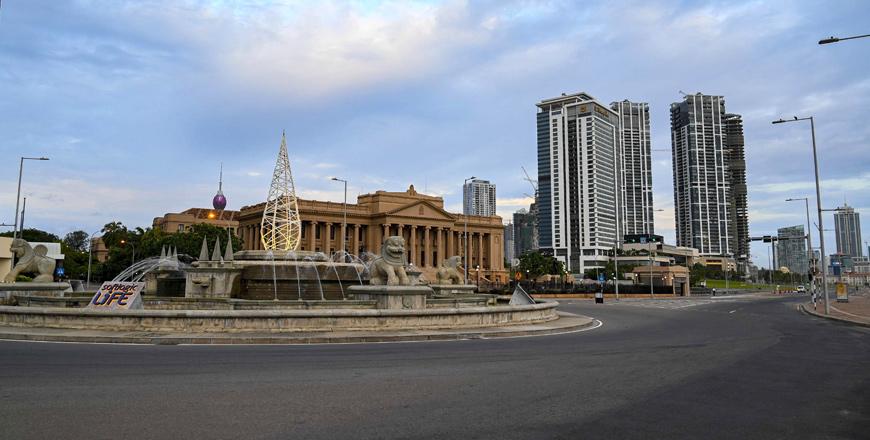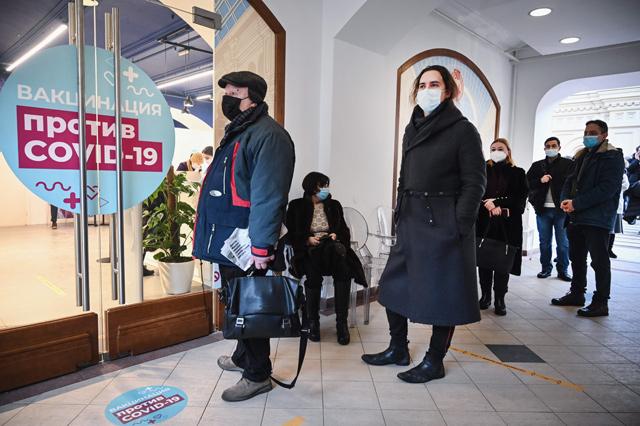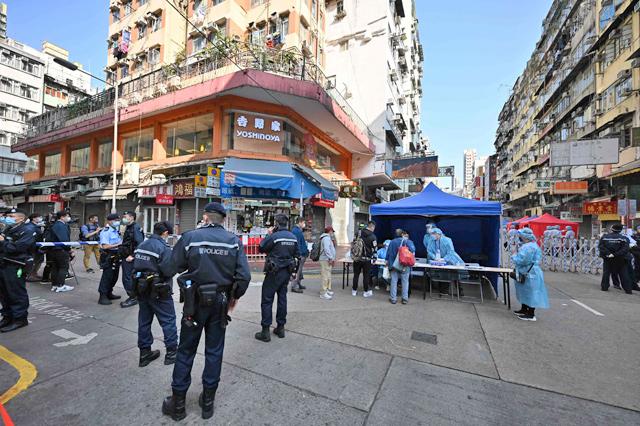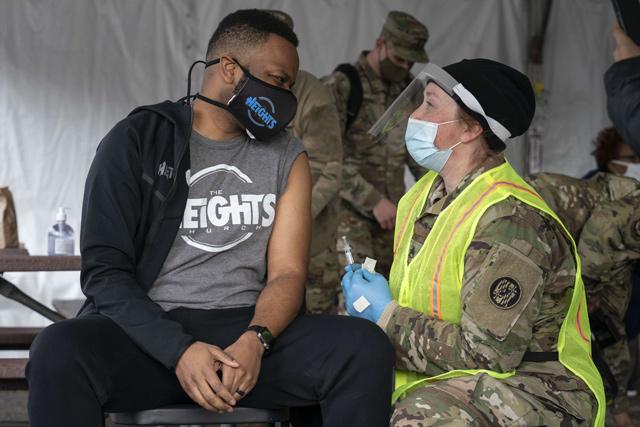You are here
Pandemic to be 'far more deadly' this year, WHO warns
By AFP - May 16,2021 - Last updated at May 16,2021

A general view shows a deserted road during a government imposed travel restrictions and weekend lockdown to curb the spread of COVID-19 coronavirus in Colombo on Saturday (AFP photo)
GENEVA — The World Health Organisation (WHO) issued a grim warning on Friday that the second year of COVID-19 was set to be "far more deadly", as Japan extended a state of emergency amid growing calls for the Olympics to be scrapped.
"We're on track for the second year of this pandemic to be far more deadly than the first," said WHO Director General Tedros Adhanom Ghebreyesus.
The mood also darkened in Japan where the coronavirus state of emergency took in another three regions just 10 weeks before the Olympics, while campaigners submitted a petition with more than 350,000 signatures calling for the Games to be cancelled.
With Tokyo and other areas already under emergency orders until the end of May, Hiroshima, Okayama and northern Hokkaido, which will host the Olympic marathon, will now join them.
Japanese public opinion is firmly opposed to holding the Games this summer.
Swiss tennis great Roger Federer said on Friday that "what the athletes need is a decision: is it happening or isn't it?"
"I would love to play in the Olympics... But if that doesn't happen due to the situation, I would be the first to understand," he added.
The pandemic has killed at least 3,346,813 people worldwide since the virus first emerged in late 2019, according to an AFP tally of official data.
Sputnik vaccines reach India
India, meanwhile, started deploying Russia's Sputnik V coronavirus vaccine, the first foreign-made shot to be used in the country that has been reeling from an explosion in cases and deaths.
The first token batch of Sputnik vaccines — reportedly 150,000 doses — arrived on May 1 and a second delivery is expected in the next few days.
A number of leading India-based drugmakers have agreements for local production of Sputnik V with the aim to produce over 850 million doses of the jab per year.
India has been adding roughly as many new COVID cases daily as the rest of the world put together.
More than 260,000 Indians have died, according to official figures.
In Europe, British Prime Minister Boris Johnson warned that the arrival of the B1.617.2 variant, one of those believed to be driving the Indian surge, could delay reopening of society and the economy.
“This new variant could pose a serious disruption to our progress,” Johnson said, adding “We will do whatever it takes to keep the public safe.”
Britain’s health ministry has tracked the variant in northwest England and in London.
Germany has already added the UK back onto its list of “risk areas” requiring extra checks, but not necessarily quarantine, for incoming travellers.
Elsewhere around the continent, tourist hotspots are opening up.
Greece kickstarted its tourism season on Friday, hoping to reverse last year’s miserable summer.
“I hope to forget this damn COVID,” said Jil Wirries, a 28-year old student from Hanover, Germany, collecting luggage on the island of Crete.
“Everything is terrible in Germany... people are depressed... I’m so happy to be here.”
France and Spain launched tourism campaigns this week too while Italy said on Friday it was scrapping a quarantine requirement for visitors from the EU, Britain and Israel who test negative for the coronavirus.
And in the US, the top health agency on Thursday said it was lifting mask-wearing guidance for fully vaccinated people.
‘Milestone’
President Joe Biden declared a major victory in the battle against the virus that has seen more than 580,000 Americans die.
“I think it’s a great milestone, a great day,” he said.
Some, however, said they would continue to wear their masks out of caution.
“I’m still going to wear a mask inside,” said Mubarak Dahir, a 57-year-old tourist in the capital Washington, visiting from Florida. “I think it’s premature, it’s a little dangerous to believe that we are that far already.”
The WHO also said on Friday that even the vaccinated should keep wearing masks in areas where the virus is spreading.
“Vaccination alone is not a guarantee against infection or against being able to transmit that infection to others,” WHO’s Chief Scientist Soumya Swaminathan said.
Almost 60 per cent of US adults have now received one or more doses, while cases are falling fast, down to a seven-day-average of 38,000 or 11 per 100,000.
And the US campaign to vaccinate adolescents aged 12-to-15 began on Thursday in earnest following the authorisation of the Pfizer-BioNTech vaccine in this age group.
But the WHO urged wealthy countries to stop vaccinating children and instead donate doses to poorer nations.
“I understand why some countries want to vaccinate their children and adolescents, but right now I urge them to reconsider and to instead donate vaccines to Covax,” said WHO chief Tedros.
In sports, the Turkish Grand Prix, which was only drafted onto the Formula One calendar as a replacement for the cancelled Canada GP two weeks ago, was itself axed on Friday.
Formula One chiefs announced they will instead return to the sport’s safe haven of Austria.
Related Articles
MOSCOW — Russia on Monday began offering its coronavirus vaccine to any citizen that wants one, while Britain enforced a quarantine on incom
WASHINGTON — US President Joe Biden on Friday said "well over 600,000" Americans could die of the coronavirus as he stepped up federal aid i
GENEVA — The World Health Organisation(WHO) on Friday called on vaccine makers to dramatically boost production, as US President Joe Biden w






















